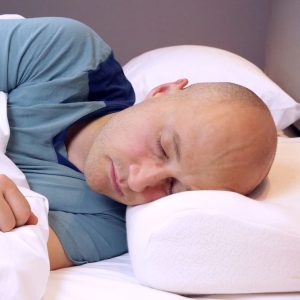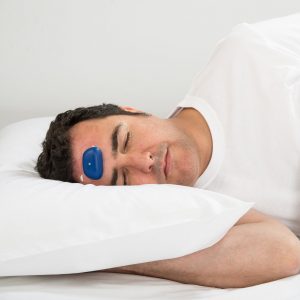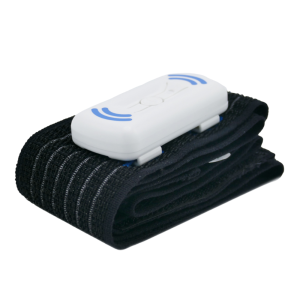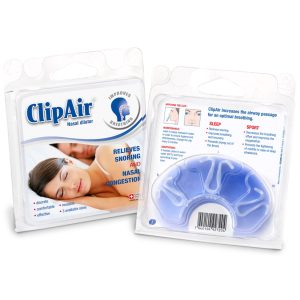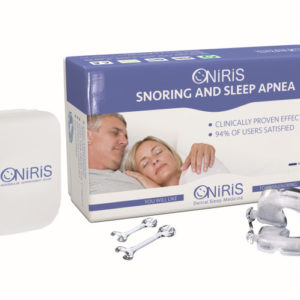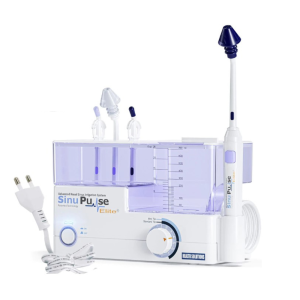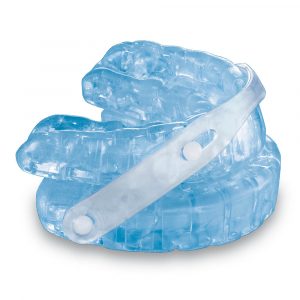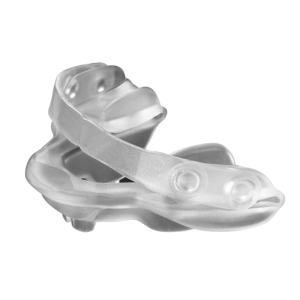Snoring Solutions
Anti-snoring devices are great options for snorers; they work to open the airway, making it easier to breathe through the nose. Around 40% of UK adults snore, making it a common issue affecting millions nationwide.
Snoring occurs when air can’t move freely through the nose, and the muscles in the throat relax and loosen, narrowing the airways. This process causes the throat tissues to rattle and vibrate, creating the snoring sound. It can be caused by various factors, differing from person to person. For some, it’s down to anatomy, weight, nasal congestion, or sleeping position.
How do anti-snoring devices work?
Specific snoring aids are designed to suit different snoring severities and personal preferences. Here’s how the most popular devices work:
Mandibular devices: Mouth guards or Mandibular Advancement Devices (MADs) are small snoring gum shields. They pull your tongue and jaw forward, creating more space in your throat and keeping the airway open. They can be easily moulded to your teeth using the boil-and-bite method for a customised fit. They are clinically proven to reduce snoring and help stop teeth grinding.
Nasal dilators: These small nasal prongs sit inside the nasal holes and open the nasal passages. The dilators make breathing through your nose easier, so you are less likely to snore. This popular option is easily moulded for a comfortable fit.
Nasal strips: Snoring is often caused by congestion, restricting airflow through the nose and causing you to snore. Nasal strips are flexible bands that gently open the nasal passages to relieve congestion. The small strips stick to the bridge of the nose to stop mouth breathing.
Positional therapy – There are various types of positional therapy, they include:
Somnibel positional sleep therapy: The Somnibel is a small forehead device that vibrates when you roll onto your side. The light vibrations do not disturb your sleep, making it a simple way to stop snoring.
Anti-snore belt: The anti-snore belt also creates light vibrations when you turn onto your back. The soft belt material makes it comfortable to wear all night long.
Anti-snore pillows: These pillows are designed for positional snorers, who only snore when sleeping on their backs. They feature cut-outs to encourage side sleeping. The curves keep your head tilted to the side, preventing you from rolling over and keeping your airway open. Studies have shown that sleeping on your side can reduce the compression of the airways, stopping snoring.
Nasal irrigation: Snoring caused by congestion can be treated using a nasal irrigator. The irrigator flushes out your sinuses, which can stop nasal blockages. The SinuPulse Nasal Irrigator uses a natural saline solution to rinse the sinuses quickly.
To stop snoring, try staying hydrated, sleeping with your head raised, and sleeping on your side. These lifestyle changes can help.
What snore stopper is right for me?
You can contact us for guidance if you’re unsure what item you require. Leaving your snoring untreated can interfere with your day-to-day life. Increased fatigue is present as you do not experience quality sleep.
What are the benefits?
Better Sleep: You sleep more peacefully by reducing snoring, allowing you and your partner to rest.
Increased Energy: These devices can help you wake up feeling more energised by improving the quality of your sleep.
Improved Relationships: Less disturbance for your partner, leading to better relationships and happier bedtimes.
Reduced Fatigue: You’ll experience less daytime tiredness, making staying focused and alert throughout the day easier.
Enhanced Breathing: As the device keeps your airway open, it makes it easier to breathe.
Healthier Heart: Better sleep quality, which can contribute to a healthier heart.
Increased Confidence: Knowing that you’re addressing the issue can boost your confidence and self-esteem.
How do I know I’m snoring?
You can find out if you snore without relying on others by noticing certain signs yourself:
- Waking up with a dry mouth can be an indication you are snoring as you have been breathing through your mouth.
- Halitosis (bad breath) is a sign you are snoring as snorers breathe through their mouth, decreasing saliva and drying out the mouth.
- If you wake up tired, this can be a result of chronic snoring breaking your sleep cycle.
- It can cause brain fog and poor concentration due to broken sleep.
Snoring or Sleep Apnoea?
1 in 10 people who snore have the sleep condition Obstructive Sleep Apnoea (OSA).
This condition makes you stop breathing while sleeping because the throat muscles relax and block the airway.
Snoring is one of the most common symptoms; if you think you could have OSA, our In-Home Sleep Test is a quick way to find out.

